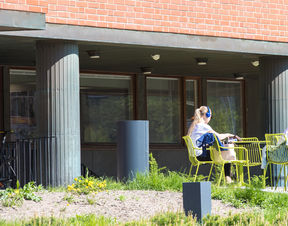Self-management makes work more engaging, reduces stress, and speeds up recovery

Is it the key to a good work experience, or lazy management and abandonment? There are strong opinions both for and against self-management, but proper research has so far been rare.
A new report, published on 30 April, will correct this situation. The joint project between the Finnish Work Environment Fund and Aalto University looked at the impacts that self-management has on wellbeing. The project, led by Frank Martela, Docent of Psychology, interviewed 2,000 Finns through web panel and over the phone with questions about working conditions and well-being at work. Interviewees were selected so that there would be a representative sample from all sectors and industries, as well as from all age groups and educational backgrounds. Feelback Oy handled material collection.
“This study clearly shows that a stronger experience of self-management is associated with higher work engagement, and lower burnout. Employees with a sense of self-management also felt that they have an easier time recovering, and felt less stress”, says Martela.
Jari Hakanen, research professor for the Finnish Institute of Occupational Health, highlights the scope of the research material.“What’s important about this study is that it included people that work in a wide range of companies and industries. The greater the level of hierarchy at work, the less engagement people experienced. Hierarchy was also a predictor of burnout symptoms.”
400 respondents also participated in a follow-up study four months later. This later study also showed a positive connection between self-management and work engagement, rather than a negative one.
Jari HakanenThe greater the level of hierarchy at work, the less engagement people experienced. Hierarchy was also a predictor of burnout symptoms.
Remote work contributes not to burnout, but boredom
According to the study, self-management is stronger in smaller organisations compared to larger ones. People in higher positions in an organisation, with higher pay and better education, felt a greater sense of self-management.
Martela says that it was slightly unexpected to find out that younger employees felt more of a sense of self-management compared to older employees, whereas middle-aged employees felt it the least. The differences were not, however, very large between the age groups, and a reason for the differences was not found in the study.
In the study, self-management was defined as the employee’s experience of how much power they have to make decisions concerning their own work. Strong self-management means that an employee can independently decide how they work, how they set priorities, and how they set their own goals.
“I think that remote work, during the covid-19 pandemic, must have led to an increase in self-management as the supervisors have been forced to give their employees the room to self-management. This is very good for autonomy”, says Martela.
Frank MartelaI think that remote work, during the covid-19 pandemic, must have led to an increase in self-management.
Hakanen has also studied working conditions and well-being before and during the pandemic in the “How is Finland?” research project, which also showed similar results.
“Increased burnout is not something remote workers have experienced, but they have felt an increased sense of boredom at work. Remote work is done with the same device, in the same place, and the world seems to have shrunk. Self-management is important, but reinforced support from the community is also needed – structures and forms of communication for caring. These can have an effect on employee commitment.
The first phase of the study took place in September 2020, and the second phase took place in January 2021.
Further information:
Frank Martela
Postdoctoral Researcher
Aalto University
frank.martela@aalto.fi
tel. +358 50 570 916
Jari Hakanen
Research Professor
Finnish Institute of Occupational Health
jari.hakanen@ttl.fi
tel. +358 30 474 2453
Read more news

Hanaholmen’s 50th anniversary exhibition lives on online – making the history of Finnish–Swedish cooperation accessible worldwide
MeMo Institute at Aalto University has produced a virtual 3D version of the anniversary exhibition of Hanaholmen.
Everyday choices: Frank Martela, should we take happiness seriously?
Insights from an assistant professor and philosopher who studies human well-being and motivation.
Research reveals the economic significance of family firms in Finland
The findings show that, on average, family firms are more profitable and financially resilient than other firms – and also invest more.






